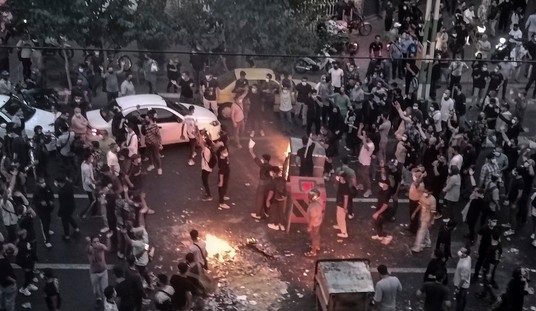
While today is known in a large part of the English-speaking world as Boxing Day, for students of military history December 26 is known as the day after one of the most remarkable events in the annals of warfare.
If you’re a student of history, you’ve probably heard the story by now — but it’s still well worth repeating in my view.
On December 7, 1914, Pope Benedict XV asked the warring governments of World War I, which was then five months old, for a truce, “that the guns may fall silent at least upon the night the angels sang.” The governments in question refused to sanction a ceasefire, but that didn’t stop soldiers from the armies on the Western Front from taking matters into their own hands – or rather, removing matters FROM their own hands. That very same day, a young Charles deGaulle had written that it was “lamentable” that some French soldiers desired a truce with the enemy — and in that sentiment, he was in full agreement with a young Bavarian named Adolf Hitler, who was also in the trenches that day.
However, at various places along the front, but most especially in the area of the Belgian town of Ypres — which had already seen one battle fought over its ground and which would see four more such battles causing at least 700,000 casualties by war’s end — soldiers decided that December 25, 1914 was a good time for an informal truce.
Accounts regarding who started it depended on which side of the trenches the writer occupied, but most of the best accounts come from the British side. British Army Captain Bruce Bairnsfather described it thus:
“The Germans placed candles on their trenches and on Christmas trees, then continued the celebration by singing Christmas carols. The British responded by singing carols of their own. The two sides continued by shouting Christmas greetings to each other. Soon thereafter, there were excursions across No Man’s Land, where small gifts were exchanged, such as food, tobacco and alcohol, and souvenirs such as buttons and hats. The artillery in the region fell silent. The truce also allowed a breathing spell where recently killed soldiers could be brought back behind their lines by burial parties. Joint services were held. In many sectors, the truce lasted through Christmas night, continuing until New Year’s Day in others.”
Other British soldiers, including Brigadier Walter Congreve, watched the truce at first hand and wrote about it later, though General Congreve didn’t get too close to the men as he felt he would be a sniper target.
The Germans kept good records of the event too. Richard Schirrmann, a German soldier stationed in the Vosges, wrote that:
“When the Christmas bells sounded in the villages of the Vosges behind the lines ….. something fantastically unmilitary occurred. German and French troops spontaneously made peace and ceased hostilities; they visited each other through disused trench tunnels, and exchanged wine, cognac and cigarettes for Westphalian black bread, biscuits and ham. This suited them so well that they remained good friends even after Christmas was over.”
Stories abound of football matches being played all along the front – one historian has suggested as many as thirty, with up to four being played between soldiers of the warring sides — but here I mean actual football as played with the feet instead of the kind involving helmets, unusually large men and a ball that doesn’t roll straight when you drop it on the ground.

British soldiers in an impromptu football match, circa 1914
In many sectors, the truce lasted into the next day. British Army soldier Francis Woodruff, who later wrote Old Soldiers Never Die under the nom-de-plume of Frank Richards, noted that while the soldiers’ desire to live another day suited them down to the ground, people on the home front weren’t nearly as pleased:
During the whole of Boxing Day [the day after Christmas] we never fired a shot, and they the same, each side seemed to be waiting for the other to set the ball a-rolling. One of their men shouted across in English and inquired how we had enjoyed the beer. We shouted back and told him it was very weak but that we were very grateful for it. We were conversing off and on during the whole of the day.
We were relieved that evening at dusk by a battalion of another brigade. We were mighty surprised as we had heard no whisper of any relief during the day. We told the men who relieved us how we had spent the last couple of days with the enemy, and they told us that by what they had been told the whole of the British troops in the line, with one or two exceptions, had mucked in with the enemy. They had only been out of action themselves forty-eight hours after being twenty-eight days in the front-line trenches. They also told us that the French people had heard how we had spent Christmas Day and were saying all manner of nasty things about the British Army.”
The newspapers of the day got a hold of the news as well, to varying reactions. The New York Times was first to report the truce from the then-neutral United States on December 31, and finally the European press had no option but to report what they could. Elements of the British press printed a statement from the Army high command that fraternization with the enemy was treason along with the Army’s claim that truces were isolated along the front — though in retrospect that does not appear to have been entirely true.

Under a banner headline, the Daily Mirror of January 8, 1915 shows fraternization between the armies
Senior commanders didn’t take well to the “live and let live” policy embodied in the truce. In December 1915, British commanders issued strict rules against non-fraternization and some ordered artillery barrages throughout the day, but some soldiers still made attempts for a day of peace. One British commander, Sir Ian Colquhoun of the Scots Guards, was court-martialed for proposing a Christmas truce to bury his dead in defiance of a standing order. He was found guilty, but his punishment was annulled by Field Marshal Sir Douglas Haig.
Today, 102 years after it happened, the Christmas Truce lives on in popular culture. Perhaps the most famous example is this — a lovely rendition of “Christmas in the Trenches”, sung by the Irish tenor John McDermott through the eyes of the fictional Liverpudlian soldier Francis Tolliver. Merry (belated) Christmas to all and enjoy today’s open thread!












Join the conversation as a VIP Member